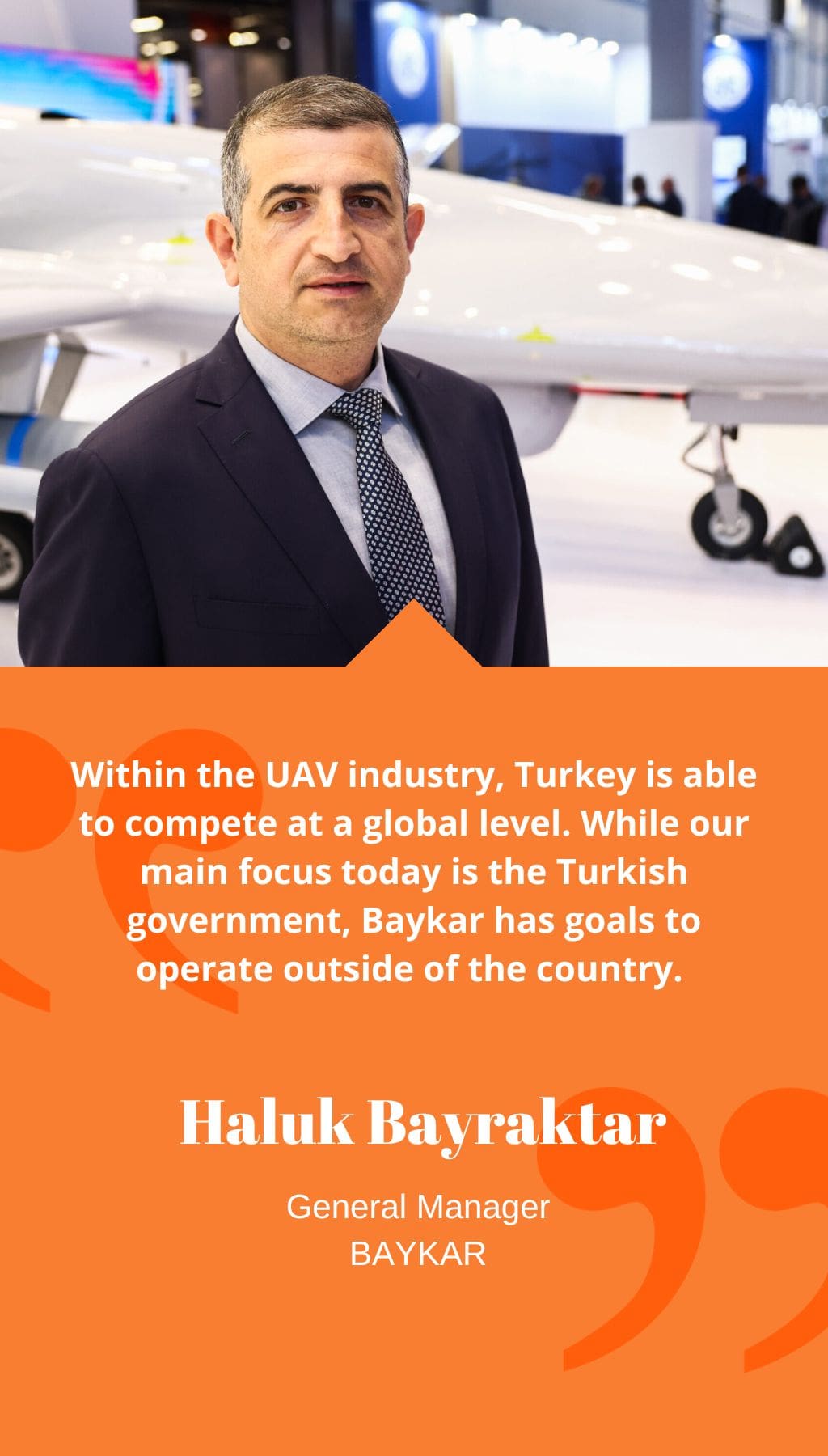
- Turkey | 10 April 2017

Can you provide us with a brief history of Baykar and elaborate on the evolution of the company, considering it began work in the automotive manufacturing business and has evolved to now manufacture unmanned aerial vehicles (UAVs)?
Sure, Baykar was established in 1984 as an engineering company and sub-contractor to major automotive companies in Turkey. In 2000, we became interested in guidance and control systems for the aviation industry, and that’s when we started exploring unmanned aerial vehicles (UAVs) as a relatively new concept in Turkey. Given the complexity of the electronics involved, we had to conduct a significant amount of research. Consequently, we discontinued our operations within the automotive industry, went back to the drawing board, and focused on fully automatic UAV guidance and control systems.
Our company mainly started with miniature-sized systems and then shifted to bigger systems over the years. Our shift from the automotive industry to the aviation industry began in 2002, and we delivered the first UAV product—Bayraktar Mini UAS—to the Turkish military five years later in 2007. Since then, we have delivered more than 200 miniature planes to the market, and our team is comprised of young and dynamic engineers motivated by work and accomplishments in new and emerging areas.
What are some of the Mini UAS’ differentiating features?
The Bayraktar Mini UAS is fully autonomous from takeoff to landing, and it continuously calculates its store of energy. If its energy is not sufficient to return to the point of takeoff, the plane will automatically return without any user intervention. The plane can fly for up to one hour and survive many adverse weather conditions. If affected by conditions such as spinning from high winds, the plane can recover automatically. Our product has a unique system along with advanced technological features, making it different from similar products on the global market.
Could you elaborate on the development of Bayraktar Tactical UAS, which can fly at 30,000 feet for up to 30 hours and has broken Turkish national aerospace altitude and endurance records?
We delivered the Bayraktar Tactical UAS, which can fly at 30,000 feet for up to 30 hours, in 2014 and 2015, and it is currently operational. Our plane utilizes a triple redundant computer system, which is the first in its class worldwide. It can travel to the runway by itself and land, brake, and park completely autonomously. Furthermore, the UAV’s surveillance view is of a very high quality both during the day and at night.
Turkey is currently focusing on building new aviation technologies, and the government is heavily supporting the development of UAV systems. Accordingly, they have put forth a criterion to determine what percentage of a given system is indigenous. 93% of Baykar’s tactical UAV project is indigenous, which is significantly high. We are able to achieve this percentage due to the fact that all critical electronic subsystems and software used in our products are developed in-house.
What is Baykar’s vision and goals for the next few years?
With regards to the current global UAV market, 85% is comprised of military forces, and only 15% of sales go towards civil use. We have to aim to develop new innovations as opposed to following others’ footsteps. Within the UAV industry, Turkey is able to compete at a global level. While our main focus today is the Turkish government, Baykar has goals to operate outside of the country. Our tactical UAV is still very new on the market, and we would like to focus all our attention on delivering the best possible products to our own country.














